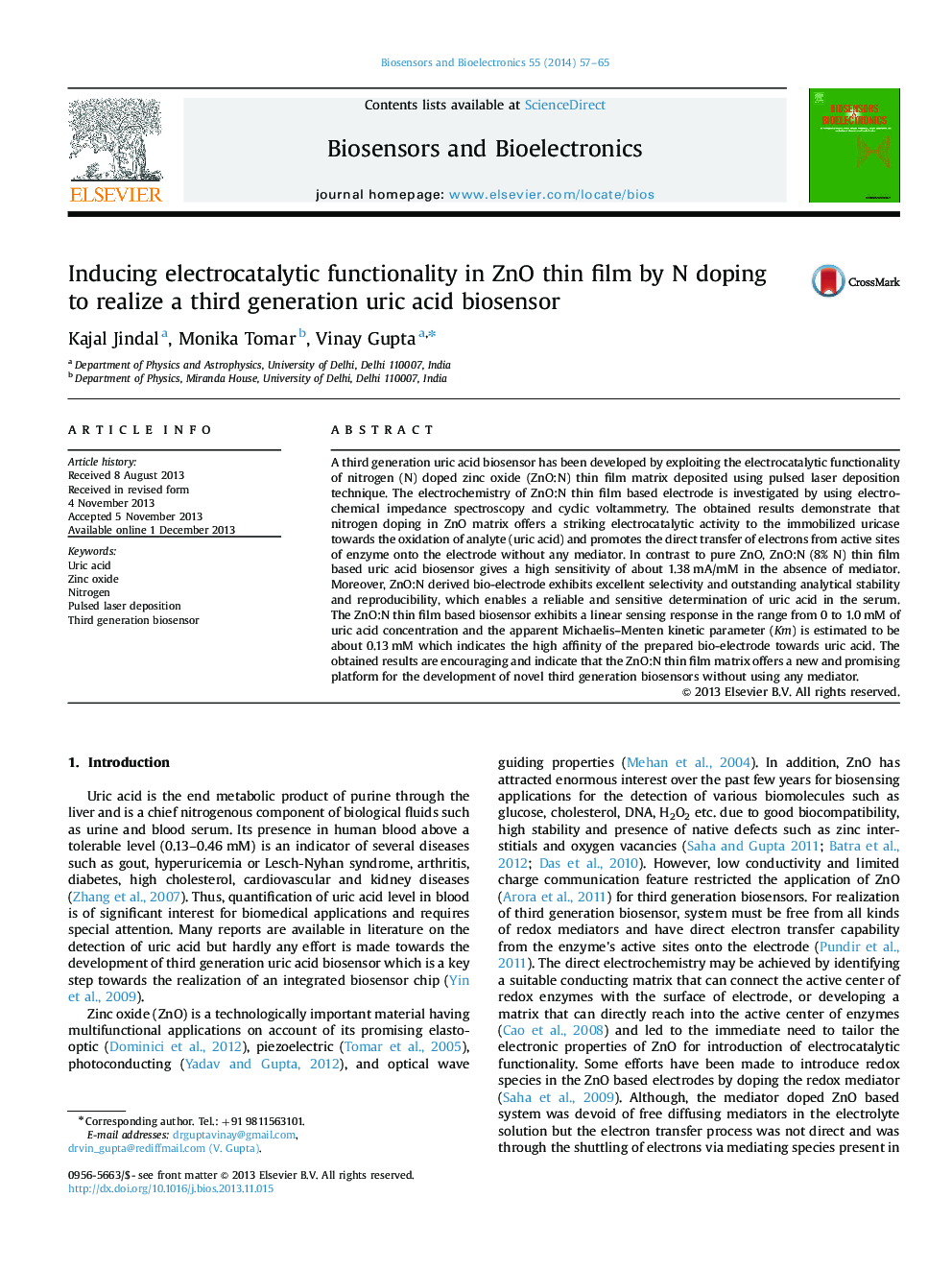| Article ID | Journal | Published Year | Pages | File Type |
|---|---|---|---|---|
| 866471 | Biosensors and Bioelectronics | 2014 | 9 Pages |
•This article focus on development of third generation uric acid biosensor based on N doped ZnO thin film.•N doping provides direct transfer of electron from active sites of enzyme to electrode.•The prepared biosensor is highly sensitive (1.38 mA/mM) and is successfully used for detection of uric acid.•ZnO:N thin film based uric acid biosensor exhibits high stability with shelf-life of more than 18 weeks.
A third generation uric acid biosensor has been developed by exploiting the electrocatalytic functionality of nitrogen (N) doped zinc oxide (ZnO:N) thin film matrix deposited using pulsed laser deposition technique. The electrochemistry of ZnO:N thin film based electrode is investigated by using electrochemical impedance spectroscopy and cyclic voltammetry. The obtained results demonstrate that nitrogen doping in ZnO matrix offers a striking electrocatalytic activity to the immobilized uricase towards the oxidation of analyte (uric acid) and promotes the direct transfer of electrons from active sites of enzyme onto the electrode without any mediator. In contrast to pure ZnO, ZnO:N (8% N) thin film based uric acid biosensor gives a high sensitivity of about 1.38 mA/mM in the absence of mediator. Moreover, ZnO:N derived bio-electrode exhibits excellent selectivity and outstanding analytical stability and reproducibility, which enables a reliable and sensitive determination of uric acid in the serum. The ZnO:N thin film based biosensor exhibits a linear sensing response in the range from 0 to 1.0 mM of uric acid concentration and the apparent Michaelis–Menten kinetic parameter (Km) is estimated to be about 0.13 mM which indicates the high affinity of the prepared bio-electrode towards uric acid. The obtained results are encouraging and indicate that the ZnO:N thin film matrix offers a new and promising platform for the development of novel third generation biosensors without using any mediator.
